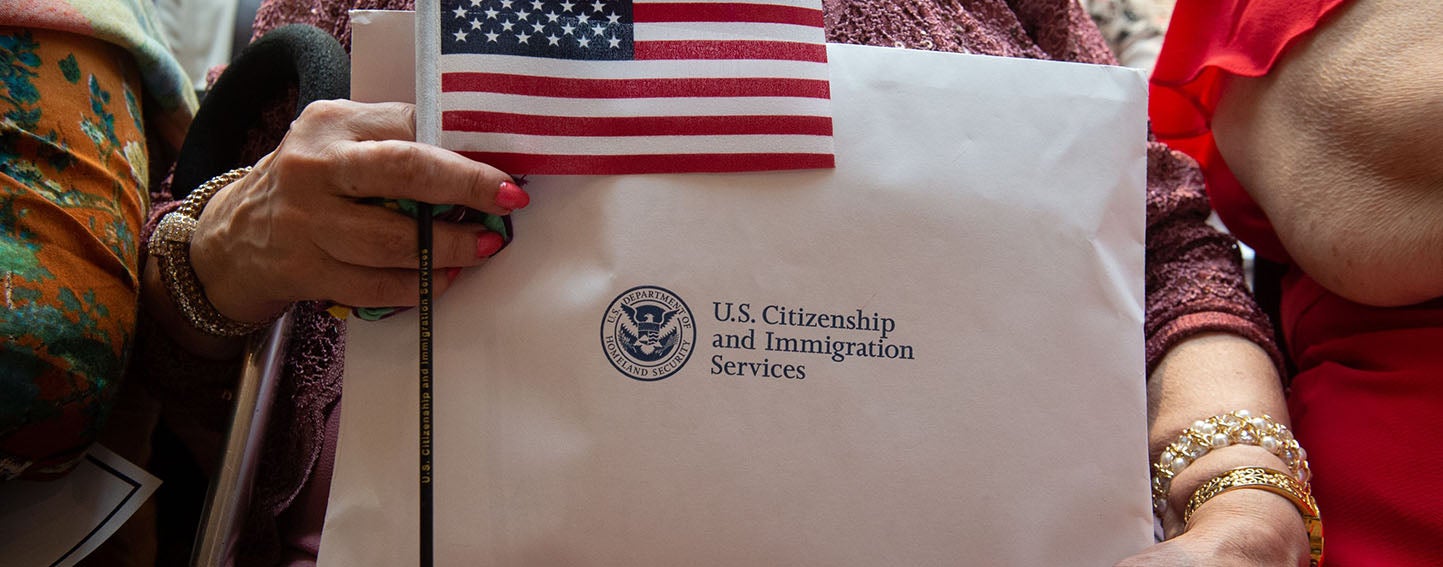
The Trump administration is seeking to modify federal regulations with harmful changes that could dramatically affect immigrants’ access to health care and other public benefits and weaken the health and social safety net. These policies affect access to health coverage, food assistance, housing, protections against discrimination, and more. These proposed changes could have major consequences for the health and well-being of immigrants across the country and especially in California, which has more immigrants than any other state.
Taken together, the administration’s proposals could damage the health and well-being of significant numbers of people. Experts suggest a recent enrollment decline in Medi-Cal among immigrant children may be partly driven by rising fear and uncertainty among immigrant families about federal immigration policy. Even as federal officials try to make life tougher for immigrants, California last month became the first state in the nation to offer full Medicaid benefits to undocumented adults who haven’t reached their 26th birthday.
Many of the federal proposals affecting immigrants have not yet been finalized. Here is an overview of several key proposed rule changes, including opportunities to file public comments.
Public Charge Admissibility
Agency: Department of Homeland Security (DHS)
Release date of proposed regulation: October 10, 2018
Public comment period: Closed on December 10, 2018 (more than 260,000 comments were filed)
Release date of final regulation: August 12, 2019
Last year, DHS proposed altering public charge admissibility criteria under which an immigrant with legal status can enter the country or be allowed to become a legal permanent resident. Under the proposal, the definition of “public charge” would be expanded significantly, and an immigrant could be deemed a “public charge” — and therefore be denied entry to the US or a green card — if enrolled in one or more of a wide range of safety-net programs. These include full-scope Medicaid (called Medi-Cal in California), the Supplemental Nutrition Assistance Program (called CalFresh in California), and others. The draft rule includes criteria giving preference to immigrants who speak English, are formally educated, and have financial means while deeming the absence of these things as negative factors that put immigrants at a disadvantage if they have health challenges they can’t afford to treat. Our earlier blog dives into details, as does a California-specific report from the Insure the Uninsured Project (PDF).
Although the rule will not take effect until finalized, cannot be implemented retroactively, and applies only to certain immigration status categories, it has created a chilling effect that is driving individuals and families to withdraw from health and safety-net programs for which they are eligible. If implemented, the changes could cost California billions of dollars and thousands of jobs, according to an analysis performed by the UCLA Center for Health Policy Research, the UC Berkeley Labor Center, and California Food Policy Advocates. According to a recent report from the Urban Institute (data), as many as one in seven adults in immigrant families reported that they or someone in their family avoided public benefit programs in 2018 in anticipation of the DHS proposed rule. The negative impact reported thus far will be exacerbated when the rule is finalized. Legal challenges will likely delay implementation, but immigrant disenrollment from key safety-net programs will likely continue.
UPDATE ON PUBLIC CHARGE RULE: As of October 15, 2019, federal courts have issued national preliminary injunctions blocking the Trump Administration from implementing its public charge rule. This means immigrant families should continue to access the health care, nutrition, and housing services they need and for which they are legally eligible. CHCF will provide further updates as they become available. For more information, readers can also refer to the Protecting Immigrant Families Campaign, National Immigrant Law Center, and the California Immigrant Policy Center.
Public Charge Deportability
Agency: Department of Justice (DOJ)
Release date of proposed regulation: Unknown
Public comment period: 60 days following release
Release date of finalized regulation: Unknown
DOJ is pursuing a related rule regarding public charge deportability that would alter the criteria under which the government can remove an immigrant from the country if that person is deemed a public charge. Journalists obtained a copy of the draft rule in May. The proposed rule is now at the Office of Management and Budget for review. It is expected to be published soon in the Federal Register, after which a 60-day opportunity to provide public input will begin. Protecting Immigrant Families (Community Resources, Get Involved) offers a range of resources for people and organizations interested in commenting.
Housing Protections for Immigrant Families
Agency: Department of Housing and Urban Development (HUD)
Release date of proposed regulation: May 10, 2019
Public comment period: Closed July 9, 2019
Release date of finalized regulation: Unknown
Housing is key to good health. HUD is proposing to alter the public housing assistance eligibility rules for “mixed status families,” meaning families with mothers, fathers, siblings, or other relatives whose immigration status has not been verified by the government. Currently, these families receive prorated housing assistance based on the number of individuals in the family who have citizenship or verified immigration status and who fall within immigration classifications eligible for government housing programs, such as Section 8. The head of household or spouse in a mixed family is currently not required to have verified immigration status to qualify for housing assistance.
Under the proposed regulations, no one in a family could get assistance unless everyone in the family has verified immigration status. Once implemented, this means that if a parent’s status is not verified, they cannot be “head of household” and thus cannot apply for housing assistance for their family — even for citizen children. This is a marked change from current statutory interpretation. If the rule is finalized, it will put access to safe, stable housing — a key social determinant of health — in jeopardy for citizen children and their mixed status families. The Center on Budget and Policy Priorities has more details about who would be affected by the rule.
The 2020 Census
There has been extensive debate and litigation about a question regarding citizenship that the administration seeks to include in the 2020 Census. Opponents argue that this question would scare immigrants and undocumented people away from responding to the census, thus leading to an undercount. The Supreme Court recently ruled that the Trump administration did not adequately disclose its reasoning for including the citizenship question on the upcoming census. Because of the tight timeline for printing the census questionnaires, the administration at first decided to go forward without the citizenship question. But after that information was given to the court that was hearing the case, the White House abruptly changed course, and the administration has declared its intention to continue seeking a legal pathway to place the question on the form.
The Urban Institute recently released a report and interactive graphic assessing potential miscounts in the 2020 census (overview, full report, interactive graphic) and identifying communities at greatest risk of being undercounted. California’s population is projected to be undercounted by 379,000 to 792,000 people due to such factors as demographic changes, underfunding, process changes, and the citizenship question. The undercount would largely occur in historically underrepresented communities, including Latinos, who account for about 40% of California’s population. Because federal funding and congressional representation are proportional to population, California could end up with fewer members in the House of Representatives and could experience a reduction in federal funding for the Children’s Health Insurance Program, CalFresh, and other programs.
Authors & Contributors

Billy Wynne
Billy Wynne is founder and CEO of the Wynne Health Group, a Washington-based consulting and advocacy practice serving clients throughout the health care sector. A graduate of Dartmouth College and the University of Virginia School of Law, Billy previously served as health policy counsel to the US Senate Finance Committee.

Dawn Joyce
Dawn Joyce is a vice president with the Wynne Health Group and a health policy expert. She has hands-on experience at the federal, state, and local levels, and previously served as a staff member for California senator Dianne Feinstein.
Joyce is a graduate of Wellesley College and UC Berkeley’s School of Public Health.





